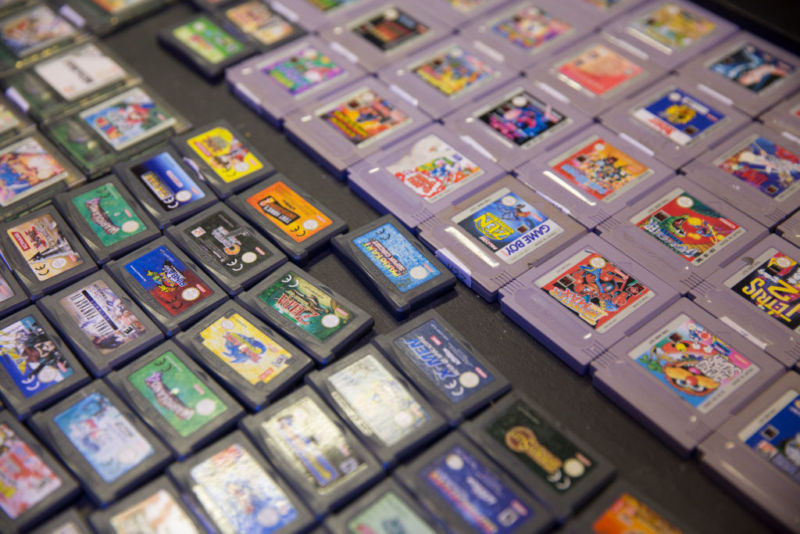
Update, November 1, 5:40 p.m. ET: Nearly 24 hours after the below report went live, Amazon responded to our questions about its new, sudden restrictions on Nintendo products by saying it had reversed course. The company forwarded a statement:
Yesterday’s email [to third-party Amazon sellers] was sent in error, and all impacted listings were reinstated within hours.
The response did not explain what "error" had occurred, nor what that span of "hours" entailed, since yesterday's complaints from Amazon sellers came as many as six hours after they'd received an email alert. It also didn't explain whether Nintendo was at all involved in the initial establishment of newer, more restrictive rules on Nintendo listings at the site. We have asked Amazon to clarify whether any such rules could return, since they still apply to other product categories at the site.
Original report:
The war over used video game sales has been cool for the past few years, ever since PlayStation 4 and Xbox One embraced unfettered access to disc-based games. But in a Thursday attempt to control the reputation of Nintendo products being sold at Amazon, the debate may rage anew.
Today, Amazon made a stark announcement to its family of third-party product resellers: effective immediately, those sellers can no longer list "Nintendo products" for sale without receiving express approval.
The announcement did not explain whether Nintendo, Amazon, or both companies were responsible for the change. And it did not include a list of affected products or Amazon Standard Identification Numbers (ASINs).
Users in the site's third-party seller forum have pointed to one commonality among affected items: the product's producer is listed as "Nintendo." This affects everything from modern Switch games and consoles to out-of-print cartridges and hardware, but it also leaves third-party makers of Nintendo console games (i.e., Capcom, Ubisoft) unaffected.
Original ASIN
The Amazon notice to resellers reads:
As part of our ongoing efforts to provide the best possible customer experience, we are implementing approval requirements for Nintendo products... Effective on 2019-10-31, you will need approval to list the affected products. If you do not obtain approval to sell these products prior to 2019-10-31, your listings for these products will be removed.
The notice sent to sellers was dated October 31—meaning, the notice's enforcement period apparently began for some resellers, according to their complaints at an Amazon forum. As of press time, enforcement of the new rules seems scattershot, with some sellers complaining about taken-down ASINs already (after shipping affected stock from various Nintendo console generations to warehouses, no less) while others say their inventory remains untouched.
Thursday's notice instructs sellers to seek "approval" for affected products before they can be listed in "used" or "collectible" condition. Meanwhile, some sellers say they're able to list affected products in "new" condition (which is sometimes impossible or unlikely, in the sake of classic and retro Nintendo products).
This follows efforts by Amazon to clamp down on other product categories' "used" sales. Included in this move are DVDs and Apple products, which now require similar approval processes to move forward. Users on the used-Nintendo forum thread have postulated that counterfeit retro Nintendo cartridges have been an open secret among Amazon sellers for some time.
In an email interview with Ars Technica, Kelsey Lewin, co-owner of used video game chain Pink Gorilla Games, agreed with that possibility. "Every online retailer has an extremely high percentage of bootlegs," Lewin writes. "I ran an experiment when Gamestop started selling Game Boy Advance games [online] again. I ordered 25 copies of Pokemon Sapphire and Ruby and got 12 bootlegs." (Lewin added that these counterfeit and reproduction carts "still play just fine," even if they're not accurately advertised.)
This doesn't necessarily explain Amazon's blanket decision to restrict anything under the "made by Nintendo" sun, however. This decision seems to imply that either Nintendo or Amazon would rather limit all used sales of Nintendo products than build a more focused list of scrutinized software and products. Additionally, Amazon has yet to roll out a similar rule for anything produced by console producers Microsoft or Sony—perhaps, in part, because those companies have wider product catalogs than Nintendo. (Lewin argues that Sony's PlayStation division would be a great target for such an Amazon restriction, as "the bootleg PS3 controller market is huge.")
Neither Nintendo nor Amazon representatives immediately responded to Ars Technica's questions about which company was responsible for the change in policy.
